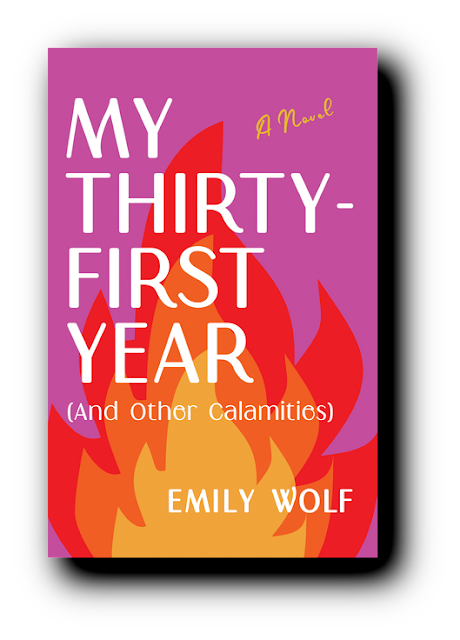The inspiring story of a bomber pilot, his crew and the woman he loved based on historical accounts…
By Helena P. Schrader
Riding the icy, moonlit sky—
They took the war to Hitler.
Their chances of survival were less than fifty percent.
Their average age was 21.
This is the story of just one Lancaster skipper, his crew,
and the woman he loved.
It is intended as a tribute to them all.
Flying Officer Kit Moran has earned his pilot’s wings, but the greatest challenges still lie ahead: crewing up and returning to operations. Things aren’t made easier by the fact that while still a flight engineer, he was posted LMF (Lacking in Moral Fibre) for refusing to fly after a raid on Berlin that killed his best friend and skipper. Nor does it help that he is in love with his dead friend’s fiancé, who is not yet ready to become romantically involved again.
“[The hero’s] struggles, his life, and the romance he is continuously hoping and striving to have with the woman he loves hits you directly in the soul, but the addition of adventure and excitement makes you want to read cover-to-cover without ever having to put the book down…. The intriguing dialogue, the settings, the clear descriptions of such harsh situations – this author has hit on all cylinders once again, and even provides the most exhilarating history lesson I, personally, have ever had the pleasure of reading. “5-Stars!” Feathered Quill
“[Moral Fibre] takes the reader into the English psyche of [WWII], tapping the depths of human emotions, holding them up to the light, and revealing their concomitant beauty and ugliness in times of fear and crises. … Meticulously researched and skillfully written, Schrader’s Moral Fibre steps off the pages and comes to life. Her nuanced characters and authentic dialogue also provide a glimpse of Britain’s stratified class-conscious culture during the WWII era.
…. A riveting read and highly recommended!” – Chanticleer Reviews 5-Stars
“Helena P. Schrader … is a true master at delving into complex psychological dilemmas and emerging with a tantalizing, completely comprehensible tale of human frailty and strengths that blend into a unique experience for her readers. Moral Fibre is brilliantly crafted in its delicate treatment of an evolving relationship … and the clashes with staid tradition and prejudices. How they each evolve is the meat of Schrader’s magic. The relationship and romance scenarios are poignant and human, contrasted with the battle scenes and flying sequences which are accurate and detailed.” – Tom Gauthier for Readers Favorites
Book Information
Release Date: May 16, 2022
Publisher: Cross Seas Press
Soft Cover: ISBN: 978-1735313924; 436 pages; $19.95; E-Book, $9.49
Amazon: https://amzn.to/3zAlbkL
Distributor: https://itascabooks.com/products/moral-fibre-a-bomber-pilots-story?_pos=1&_psq=Moral+Fibre&_ss=e&_v=1.0
“Yes, sir.”
Grace nodded, drew a deep breath and then parted his elegant hands in a gesture of vague helplessness. “We have a bit of a problem. You see, I can’t find the slightest evidence of mental illness. In fact, I would venture to say that you are one of the sanest young men I’ve talked to in a long time.”
“Well, sir, you are working at a mental institution, so you may not be seeing a representative sample of the population,” Moran pointed out.
Dr Grace laughed shortly but sobered rapidly. “The point, I’m afraid, is that in the absence of a clear mental disorder, you cannot be admitted to a psychiatric hospital.”
“That’s just as well,” Moran nodding his understanding. “I’d probably go mad there.”
Dr Grace leaned back in his chair with an amused smile playing tentatively upon his features. “I have to admit I’m somewhat surprised — but glad — to see you can face the future with this degree of levity.”
“I think it’s called ‘gallows humour’, sir.”
“Hm.” Dr Grace thought a moment and then admitted, “Moran, I can’t make a recommendation about your case unless you are more candid with me about why you refused to fly on November 23. I know you don’t want to talk about it, but unfortunately I must insist on you telling me what happened.”
Moran drew a deep breath and sat up straighter. He’d come to respect and trust Dr Grace and decided that, despite his earlier reticence, it wasn’t that hard to explain after all. “There’s not that much to it.” He ignored Dr Grace’s suddenly raised eyebrows. “On an operational sortie to Berlin on November 22, the bomb aimer was injured by flak and three other crew members, including the pilot, were severely wounded in a night fighter attack. We made an emergency landing at Hawkinge, pancaking at roughly 2:30 am on the morning of November 23. While still on the tarmac, I was informed that the skipper — my best friend — Flight Lieutenant Selkirk was dead. Apparently, he had died immediately after landing. By flying the Lancaster back to England and making a perfect landing he had saved the lives of the rest of us on board.
“The three of us who were not injured were told to take trains back to our operational station at RAF Elsham Wolds in Lincolnshire. We spent the rest of the night and most of the next morning in railway stations, sleeping as best we could on platform benches in our flying gear, or standing up in overcrowded trains. Apparently, no one in this country thinks bombing Berlin is important enough to give up their seats to tired aircrew returning from an op there!”
Dr Grace grimaced and shook his head in sympathy.
Moran continued bleakly, “We reached Elsham Wolds roughly twelve hours after we’d landed. I had only been in bed about two hours, when I was told I was slated to fly as engineer with a sprog crew that same evening. I was not amused, but I didn’t balk until they opened the curtains at the briefing and it was yet another run to Berlin.”
Dr Grace did not have to urge him to explain himself. Moran suddenly wanted someone to understand. “It was as if bloody Butcher Harris was punishing us for not hitting the target in a tight pattern the night before — as if we were to blame for the 100 mph winds, for Met getting the forecast wrong, for being scattered and ravaged by the Luftwaffe’s wild boars! We’re not people to Harris — just tools to prove that bombing alone can force Germany into surrender.
“He could have given us a night off to recover. Or he could have sent us against a different target — something closer and less hotly defended like Bielefeld or Muenster or Brest. Sending us back to Berlin the very next night was too bloody much to ask!”
Dr Grace didn’t answer for several minutes, during which time Kit started to become uncomfortable. All the rumours about what happened to men like him who “lacked moral fibre” crowded his brain — court martial, demotion to aircraftman, assignment to humiliating duties such as cleaning latrines or working in the morgue, or a dishonorable discharge and industrial conscription to the coal mines or a munitions factory. Whatever they did to him, the blot on his record would be forever.
Finally, Dr Grace drew a deep breath. “It is probably immaterial that I agree with you. I make no pretence of understanding the strategy behind our bombing campaign. As for asking you to fly the very next night, my understanding is that many squadron and station commanders feel that airmen who have undergone a traumatic experience need to be sent out again as soon as possible in order to prevent the trauma from taking root. It’s the same principle by which a rider who is thrown from a horse is told to get back on immediately. It’s well known that if they don’t, the fear of riding can become overpowering. Likewise, many pilots who have crashed need to overcome a fear of flying again. That fear increases the longer a man stays on the ground. In short, there would appear to be some justification for the actions of your CO. Would you agree with that?”
Moran nodded reluctantly. He wasn’t entirely sure this made sense. If you went out again immediately and had another terrible sortie, didn’t that just reinforce the trauma? Increase the fear?
Dr Grace was speaking again. “Now, let me ask you this — a purely hypothetical question, you understand. Could you imagine any circumstances under which you would be willing to fly operations again?”
“Of course. With a skipper I know and trust, I’d be happy to fly tomorrow.”
Dr Grace nodded but remarked with a mildly reproving smile. “That may just be a touch over-zealous, Pilot Officer Moran.”
“You did say the question was hypothetical,” Moran reminded him with the hint of a smile.
Dr Grace smiled back in acknowledgement, but then turned serious again. He leaned forward, his elbows on the desk and his hands clasped. “RAF Psychiatrists such as myself have been looking at the evidence, and we have come to the conclusion that the tours of duty are too long and the breaks between tours too short. The men who volunteer for aircrew are, with very few exceptions, men of superior dedication and character. Nevertheless, as a colleague of mine put it, courage is like money in the bank. If you use it up more rapidly than you can replenish it, you will eventually have nothing left.”
That sounded to Moran as if the wing commander was implying there was nothing fundamentally wrong with him. Indeed, he seemed to suggest that Moran had nothing whatever to be ashamed of. The psychiatrist appeared to be saying that what had happened was perfectly normal and almost inevitable. “I’m not sure I understand what you’re saying, sir,” Moran admitted.
“Nothing very complicated, Pilot Officer Moran. I’m simply positing that on the afternoon of November 23, 1943 your personal reserves of courage had been wiped out by a severe blow — the loss of your close friend and skipper on an operational sortie the previous night. You needed time to recover your confidence, your equilibrium, and indeed your physical health. You also needed time to grieve. You were a wreck when you arrived here — in case you didn’t notice.”
“Are you saying, sir, that you don’t think I’m lacking in moral fibre?”
“That is a ridiculous term with no medical basis whatsoever,” the psychiatrist retorted with an irritated gesture. “The entire notion of LMF was nothing but an administrative solution to an unexpected problem: the refusal of some volunteers to continue volunteering. Such men had, temporarily at least, lost the confidence of their commanding officers and needed to be removed from active duty, yet they could hardly be charged with desertion or insubordination. Volunteering is, after all, voluntary.”
“That doesn’t entirely answer my question, sir. I understand that for you the term LMF isn’t scientific or medical or however-you-want-to-word it, but it does describe aircrew who have failed to do their job, doesn’t it?”
“Failed? Do you feel you have failed, and if so, in what way?”
Bombarded by emotions and confused by his own thoughts, Moran couldn’t answer.
Dr Grace gently resumed talking. “Isn’t it true that the only way in which you have failed is in not living up to your own expectations? Is it not your high standards — as a member of an elite military force — that trap you into thinking that you have failed?” Grace paused and then continued, “Objectively, you have already done a great deal more to win this war than ninety-nine percent of the British population. Many would say you have indeed ‘done your bit.’”
“What ‘many’ say isn’t really the issue, is it?” Moran shot back. “The question is what does the RAF say? What do you say? It seems to me that my future is very much in your hands, Wing Commander.” Moran realized he was tired of being in limbo. Tired of waiting for the axe to fall. He wanted to know what they were going to do to him.
Helena P. Schrader is an established aviation author and expert on the Second World War. She earned a PhD in History (cum Laude) from the University of Hamburg with a ground-breaking dissertation on a leading member of the German Resistance to Hitler. Her non-fiction publications include “Sisters in Arms: The Women who Flew in WWII,” “The Blockade Breakers: The Berlin Airlift,” and “Codename Valkyrie: General Friederich Olbricht and the Plot against Hitler.”
In addition, Helena has published eighteen historical novels and won numerous literary awards. Her novel on the Battle of Britain, “Where Eagles Never Flew,” won the Hemingway Award for 20th Century Wartime Fiction and a Maincrest Media Award for Historical Fiction. RAF Battle of Britain ace Wing Commander Bob Doe called it “the best book” he had ever seen about the battle. “Traitors for the Sake of Humanity” is a finalist for the Foreword INDIES awards. “Grounded Eagles” and “Moral Fibre” have both garnered excellent reviews from acclaimed review sites such as Kirkus, Blue Ink, Foreword Clarion, Feathered Quill, and Chantileer Books.
Her latest book is the historical/military fiction, Moral Fibre: A Bomber Pilot’s Story.
Visit her website at http://helenapschrader.com or connect with her on Facebook. You can also visit her blogs:






































